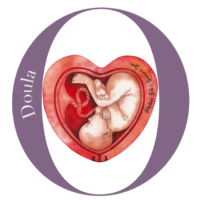This article begins, by serving to provide support specifically to mothers who’ve endured the loss of their child or children, after enduring the struggle of medically assisted conception (or Assisted Reproductive Technology – ART).
There are many forms of medically assisted conception, as well as many forms of pregnancy loss or reasons for grief following this support.
Regardless of the method(s) of assistance you endured to conceive, it has likely been an expensive, emotional, painful, seemingly isolating journey that challenged your marriage, your understanding of motherhood, and even your identity. After enduring all of that, to finally have conceived – to likely have been able to bond sooner with your baby than most other mothers because you may have found out about your pregnancy sooner than most, and may have even been given a photo of your embryo – to have experienced that amazing and profound joy, and then to have it end in loss, is devastating. Please know, that you are not alone.
Here are some methods of conception assistance, and you may have utilized any of these:
- Ovulation Induction
- Ovarian Drilling
- Intrauterine Insemination
- Female Surgery: Laparoscopy
- Female Surgery: Tubal Sterilization Reversal
- Female Surgery: Hydrosalpinx Removal
- Male Surgery: Testicular Biopsy
- Male Surgery: Testicular Sperm Aspiration (TESA)
- Male Surgery: Percutaneus Sperm Aspiration (PESA)
- In Vitro Fertilization (IVF)
- Embryo Freezing
- Embryo Donation and Adoption
- Embryo Adoption Awareness
- Blastocyst/Embryo Transfer
- Traditional Surrogacy / Gestational Surrogacy
- Other
Pregnancy loss, or reasons for grief, can occur at any point after conception takes place, and can include any of the following:
- Any of the types of pregnancy loss listed here at stillbirthday
- One or more of the implanted blastocysts/embryos did not continue into a complete and vital pregnancy
- Grieving the loss of multiple blastocysts, either by medical discarding, selective reduction, freezing expiration, embryo adoption or any other situation
- In traditional surrogacy, the “intended mother” grieves the biological experience that the father has
- In either traditional or gestational surrogacy, you are the surrogate mother and you grieve the “loss” of the child as the baby is welcomed by their family
- In either traditional or gestational surrogacy, you are the surrogate mother and you experience pregnancy and infant loss and experience a grief that can feel complicated in your situation.
- Discovering that implantation never took place after transfer
For surrogate mothers, the grief of loss can feel complicated because:
- You stand to validate the decisions and journey of surrogacy.
- You have prepared your heart and mind for the understanding that you are not “relinquishing your child” but that you play an integral role in growing someone else’s family. Yet experiencing pregnancy and infant loss as a surrogate can feel very personal and deeply grieving.
- You can be faced with feeling as if your body failed you, and failed the family you intend to honor with your surrogacy commitment. This can be compounded with a suspicion that somehow the family may accuse you or suspect some kind of negligence or fault, when in fact this is not true.
- You can be faced with feeling that the journey of surrogacy is pushing too far, that experiencing pregnancy and infant loss is proof of that, when in fact this is not true.
- It is your blood that you see, it is your very intimate obstetrical experience, including birth planning and birth methods in the experience of miscarriage or stillbirth that you are witnessing.
- You have the painful privilege of bearing sacred witness to this loss the family is experiencing, and this may or many not be the first time their fertility struggle is shaped by loss after conception – via miscarriage or stillbirth.
- You have the painful privilege of inviting the family to experience the miscarriage or stillbirth by allowing them to bear sacred witness to your labor or in some way be involved in the welcoming or the farewell.
- Because you are surrogate, if it is medically necessary to have a medically assisted birth – in the case of D&C, D&E or later in which an autopsy may be requested or in any instance in which the physical form of the baby may be received by medical staff, it is best to articulate very clearly who the parents are and what their wishes are. If you do not know what those wishes are or if they are not yet sure, please consider the options that will give you the most options later – meaning, it is best to articulate very clearly to medical staff prior to their receiving the physical form of the baby, that you will like to have the physical form of the baby returned to you. Having this expressly written, read and understood by all involved can help clear up any possibly confusion or hospital policy issues later and can potentially expedite the process of having the physical form of the baby returned to you. If this turns out to be an impossibility, seeking to retrieve any photocopies of any microscope slides can be a tangible, visual way that the parents can have their baby’s physical form. This, in addition to any medical records, reports and information. Please see the birth plans that would be the most appropriate to your circumstances.
All of these reasons for hurt or grief deserve to be validated.
You are invited to see our library of personal stories shared by parents (visit the right sidebar), which include:
- Snowflake Babies
- Living Grief (grieving aspects of parenthood, related to children who are alive: includes birth trauma, adoption, surrogacy, menopause)
- Selective Reduction
- Ending Fertility with a Loss
You are also invited to share your story.
Some supportive resources for any of these concerns:
- Information for emotionally preparing for surrogacy
- Information on state laws regarding surrogacy
- Information on grief after selective reduction
- Online contact form specifically for grief after ART
- Information for of pursuing ART
- Information on emotional aspects of embryo freezing
- An SBD Doula may support you through a specialized surrogacy birth plan
Additionally, if you are experiencing a pregnancy loss while utilizing medical assistance for conception, you may wonder what the best birth method for your pregnancy loss might be, and if there is any difference in your choices when your pregnancy loss relates to ART in any way. Your birth methods are, for the most part, still the same for pregnancy loss. You can view the birth methods for pregnancy loss here.
Specific options that may be discussed between you and your care provider might include:
- If your hormone levels are a factor that could inhibit the process of natural delivery, or you are eager to begin the next cycle, level, phase, or ART attempt and time is a factor, a more medically assisted delivery of your pregnancy loss may prove to be better for your situation. For example, miscarrying naturally can take several weeks to complete, but a D&C wouldn’t-but could come with additional risks.
- If you are Rh-negative, your provider may suggest getting the Rhogam shot to protect you against Rh incompatibility, which could affect future pregnancies. If you experienced a miscarriage under approximately 12 weeks gestation, your provider may suggest the micrhogram shot.
- Your provider might suggest IVIg therapy. It would be important to know why this is being suggested, what the potential risks and potential benefits could be, and any alternative therapies available depending on the already stated variables (these might include Intralipid, Lovenox, other medications or natural therapies that a holistic healthcare expert could possibly provide suggestions for).
- Any of these topics and all specific issues pertaining to your pregnancy and pregnancy loss experiences need to be discussed with your care provider, and they should be apprised of all ideas and suggestions you are evaluating.
Articles related to ART (these will be updated as often as they are submitted and deemed to have possible relevence)
- Twin embryo IVF success rate
- stillbirthday’s Recurrent Miscarriage section may prove useful for emotional support as well as alternatives and other parenting options
Please know that you can share your story, or any helpful resources with us here. You can access yours and others stories related to loss after ART here.













